The Calvellis’ Italian Saga from Calabria to the Bronx
John P.: When I started working I needed a motorbike to go onsite. (I was supervisor of a construction site that was nine kilometers long.) I eventually bought one without my dad knowing. He didn’t want me to. He thought it was too dangerous.
John D.: But you did it anyway?
John P.: Of course! It was 1953, I think.
When my dad found out it was mine, he had to accept it! At that time, in the village of Vico, there were no motorbikes. I was one of the rst to own one and everybody would come and ask for a ride. And I’d often take trips, including with girls...
John D.: So basically you became the coolest guy in town overnight.
John P.: I had a good time and your grandma did too! But before we got married we couldn’t ride the bike together; her aunt forbade us to! Then in 1958 I came to America and left it to my brother, Ciccio. A few years ago I went to Italy and found it in real bad shape. I asked my brother to get it xed and then I brought it over to America. I’m so glad to have it here now.
Life in the ancestral village
John D.: Tell me about Vico, what was it like when you were a kid?
John P.: Today Vico is a small village, but when we lived there it was very densely populated
John D.: It’s hard to believe...
John P.: It’s hard to believe but it was. And we were all friends. We were like family. We grew up with nothing, but despite that, we never felt like we missed out on anything. What glued people together in Vico was the cultural circle of Azione Cattolica (Catholic Action). There was nothing else to do in the evenings, so you went to church, where the cultural circle was...
John D.: So you’d say your fondest memories of Vico came from the church, the center of town?
John P.: Yes, the church was the center of everything. Every night I would go there and play checkers, chess, cards. Then the television came out and the priest bought a set... Sometimes you would see a naked girl... So he put a piece of cardboard by the TV and whenever there was an indecent scene he would cover the TV with the cardboard! It was like a curtain that he would put up and down. That’s how we spent our youth.
John D.: I’ve been to Italy many times now, and after seeing Vico myself, what struck me the most was its real sense of community. For one thing, the houses are so close together, I nd it hard to believe you wouldn’t become friends with your neighbors. Then the close-knit community that seems to be there... I remember one time you and I were walking the streets and there was no one outside. But you just started yelling and screaming, “Everyone come out of your houses! John’s here! I’m back, baby!” And everyone did come out. It really made me feel that sense of community that I know you had since day one.
John P.: It’s because I was the initiator of everything happening in Vico. For example, at the Catholic Action, the priests forbade us to dance. So I organized dances. At Carnival, Ferragosto, Easter... whenever there was a holiday. My young sisters had a lot of girlfriends. So we would get together at our house and dance. We had the radio, a gramophone, and records, and we danced. Grandpa Luigi was there, and when he saw us dancing too close, he would come and separate us a little.
John D.: And the priest?
John P.: The priest found out. So one Sunday, he stood at the altar and said I was the town devil. Afterwards I approached him: “Don Ciccio, don’t say that. What’s wrong with dancing?” Back then it was forbidden... because they thought we would end up in bed.
John D.: Why did you leave all this behind and come to America? You seemed happy in Vico.
John P.: Let me tell you what happened. Your grandmother Nonna Rosa and I grew up together. We’d always spent time together. When she and her sisters left for America in 1947, I told her, “One of these days, I’m going to marry you.” And we did eventually. But when we decided to get married she said we had to go to America. ‘But why?’ I said. ‘Because my mom and dad are there.’ And that’s why we came here.
Life in the Bronx
John P.: When we arrived in America we stayed with her parents for a couple of weeks until we found an apartment in Arthur Avenue, the Bronx’s Little Italy.
I didn’t want to buy a house. I used to say, “I already have a house in Vico.” I didn’t want to stay in America forever. My mom, dad, brother and sisters were all in Italy. I felt lonely here. I missed my family. When I received their letters, I would go and read them in the bathroom and cry. Then I realized there was a sense of community in the Bronx. Living in the Bronx was like living in Italy. It was as if you were in Cosenza [a midsized town in Calabria].The stores, the shop windows, the evening strolls, everything was in Italian.
John D.: So you really felt the same sense of community and culture in Arthur Avenue that you had felt in Italy?
John P.: It was the same as being in Italy. Not like now. There were far more Italians then. It was the rst place Italians would settle. In the evening I would always go out for a walk with Professor Tusiani, Peppino Ventura and Aldo Cefalone. I started attending church at Mount Carmel on 187th. And, just as in Italy, we would go to the Catholic Action Association. Bishop Pernicone spoke Italian. In church we could all speak Italian.
A culture of acceptance
John P.: When I came to America, I couldn’t speak English. We used to speak Calabrese dialect. But I told your father and uncle, “Outside you must speak English. But when you’re at home, Italian only!”
John D.: You know, I understand the language but I can’t speak it!
John P.: You can talk very well!
John D.: Yeah, but it ebbs and it ows, comes and goes.
John P.: Doesn’t matter how you say it, just speak Italian! Did you see how good it was for your dad and uncle? Your uncle even taught Italian!
John D.: Well, I never had the chance to take Italian in school, Nonno... I took Latin because it was the closest thing.
John P.: You de nitely didn’t take after me, I hated Latin!
John D.: I’ve been taking Latin since 6th grade. I felt, “Oh, it’s our ancient Italian forefathers!” I wanted to get to know that culture.
John P.: And Latin was the rst language, all other languages come from Latin.
John D.: Exactly ... I could talk for hours about how we should defend Latin. But in my opinion it’s even scarier that we’re losing Italian in so many schools. Because, you know, I feel that understanding and maintaining the culture you come from is one of the most important things that we need to do as a society. And one of the most signi cant ways that we can maintain our ties to our original cultural heritage is through the language.
John P.: Never forget that! Never forget that your roots are in Italy.
John D.: I also think that understanding one’s own culture can help one to understand everyone’s culture, right? Culture in itself is both divisive and inclusive. I think that today we tend to view the divisive part of culture more, the part that splits us. “They are their culture and we are ours!”That kind of seems to be the end of the line. But I think this stems from the fact that so many people are losing their initial connection with their own culture. Clearly that didn’t happen to me, because I was able to live through your immigrant experience, through my study of Latin, through my study of ancient history. Actually, by knowing your own culture, you can really connect with and understand all of the other cultures around you. It’s very important that we realize that. You may like food, and your food may be different, but we all appreciate food. Your language may be different but we all value language. And you may have a different tradition but we all fundamentally value tradition. So, through an understanding of your own food and culture and tradition, you can realize the inclusive aspect of all other cultures.
John P.: Sure. That’s why you must hold on to your tradition and pass it down to the younger generation. Same with food. One way we kept our traditions alive
was through food. Our cuisine is quite Italian, though we used to make turkey at Thanksgiving!
John D.: Our Thanksgiving is very Italian American. We have turkey but at the same time we have lasagna, right? I think that the simple fact that we eat lasagna on Thanksgiving is indicative of something much greater. It tells me that we have been able to combine seamlessly with America but at the same time did not lose our culture. Whether that be food, family, tradition... it permeates every level of society. It’s amazing that the Italian culture has been able to do that..
John P.: It is!
John D.: I also think that our Italian heritage is one of acceptance, of inclusion. The sole fact that we are Italian and that I’ve had this vicarious immigrant experience through you helps me understand and connect with other people.
Grandparents & Grandchildren in Italian America has been produced by i-Italy in collaboration with ANFE and with the support of the Ministry of Foreign Affairs, this project documents the Italian journey in the United States by way of a series of conversations between grandparents and grandchildren. We have only just begun this new adventure with our rst TV and Web series. The video of this episode, which was recently broadcast on our TV show on NYC Life (Channel 25, HD 525), can be seen on our Web TV (i-ItalyTV.com) and on YouTube (www. youtube.com/iitaly).
Click here to see the 3rd episode "The Calvelli's Italian Saga from Calabria to the Bronx".






























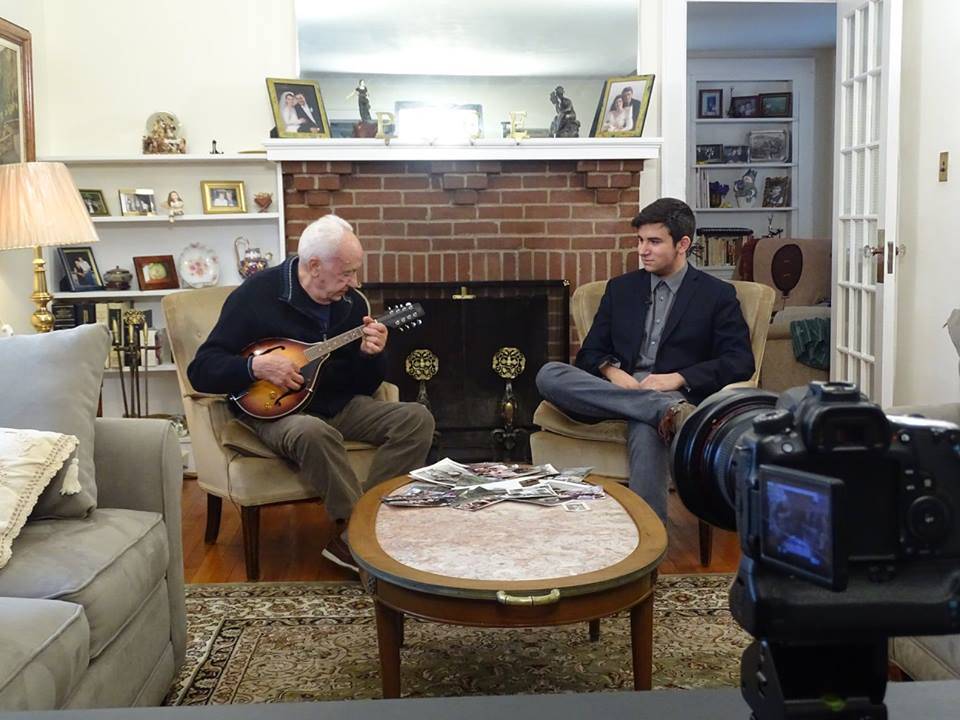

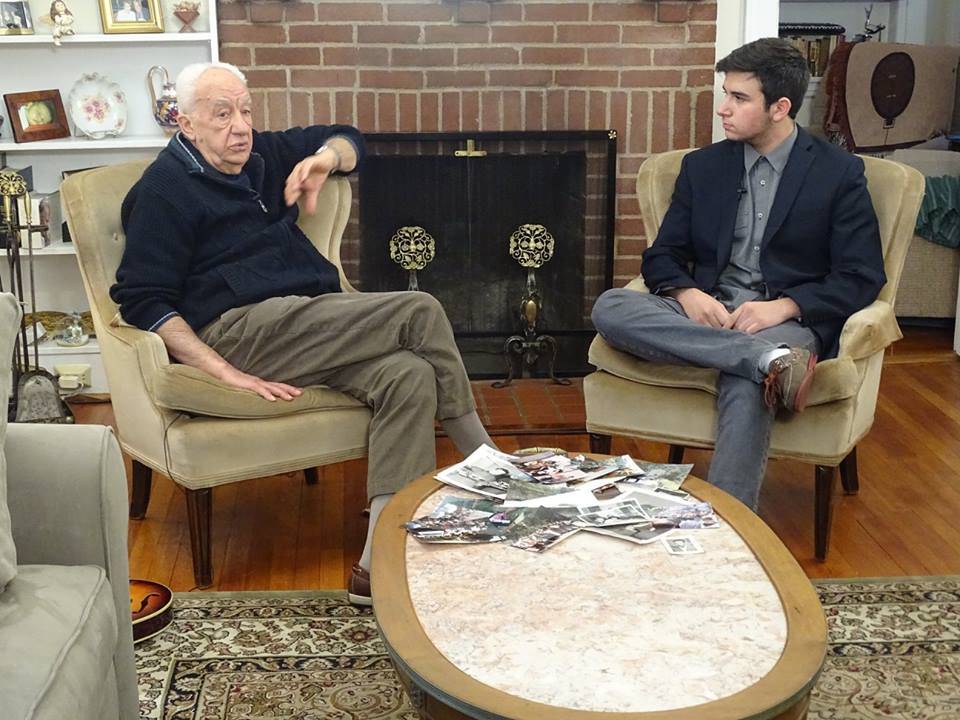
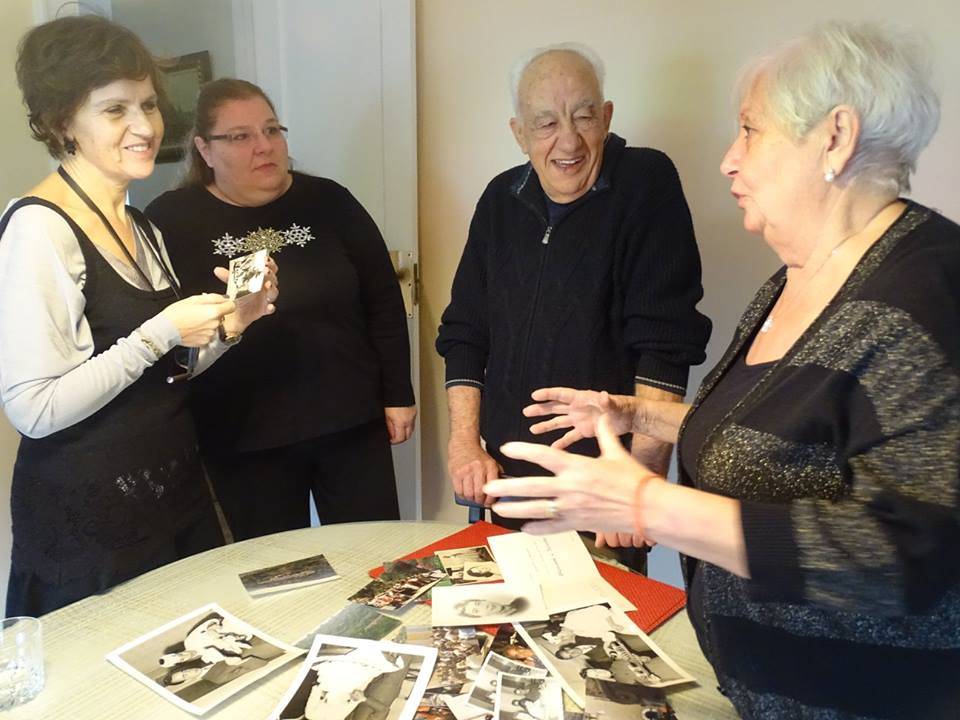
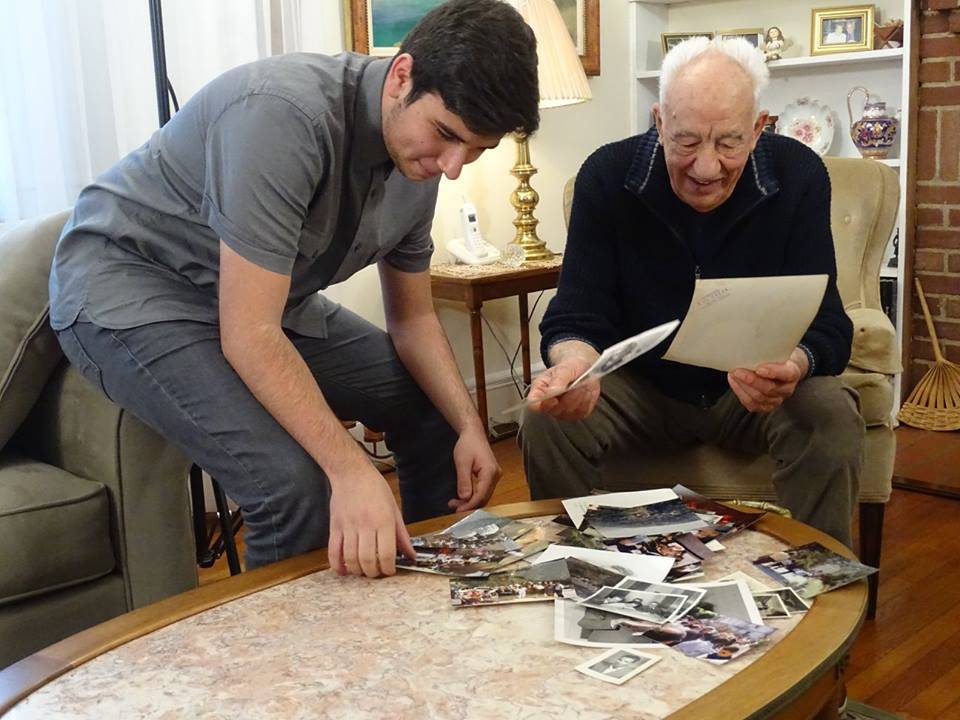
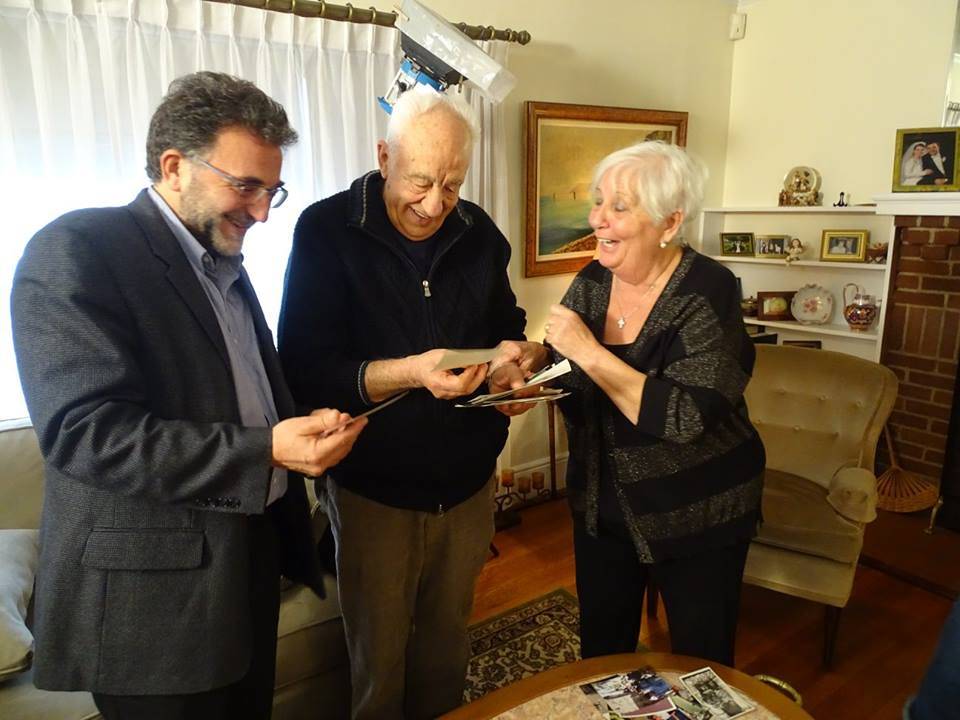
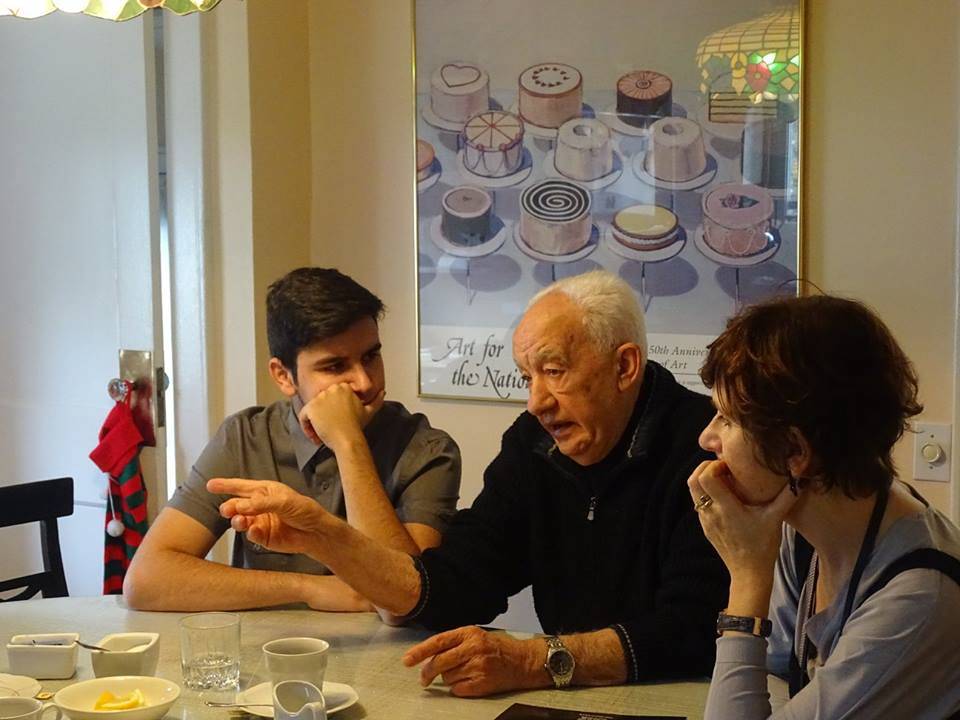



i-Italy
Facebook
Google+
This work may not be reproduced, in whole or in part, without prior written permission.
Questo lavoro non può essere riprodotto, in tutto o in parte, senza permesso scritto.